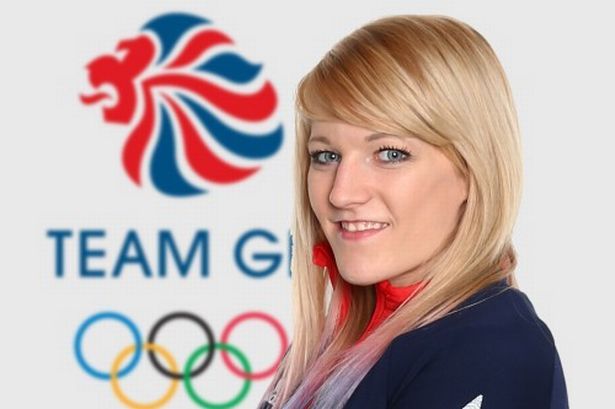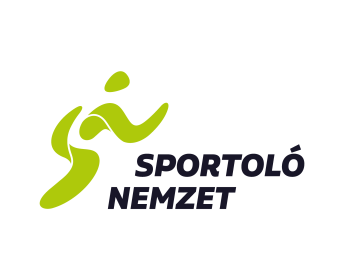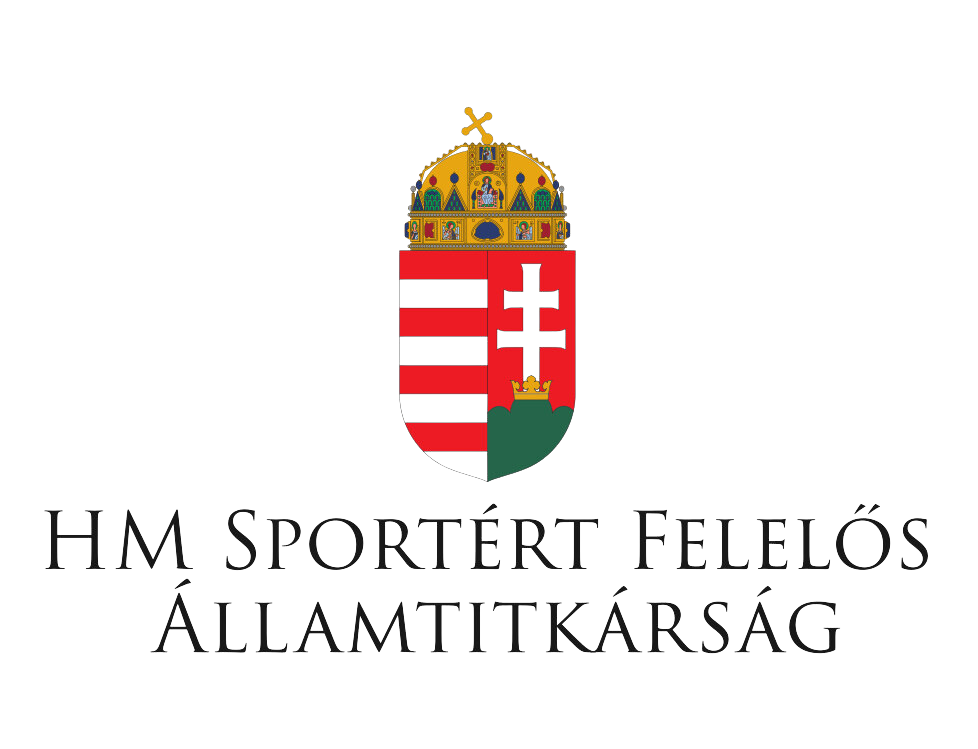
At Audi ISU World Cup Short Track in Budapest all skaters have different stories, but two of them has a unique one. Hungary’s top skater Liu Shaolin Sándor and Britain’s best female skater Elise Christie form a couple. They are living in two countries, training together with both of the National Teams. Just two week before the World Cup Elise spent again some days in Budapest.
Elise Christie: I started as a figure skater, which is quite a common sport discipline in Britain. I practiced from 7 to 13 or 14 years old, but during this time I was just learning the basics of skating.
One day I thought that speed skating looked more comfortable. So that was a kind of reason why I had a try. My first race was just a week after I had started speed skating. I won a chocolate selection box (which children get before Christmas). That’s how I started.
Have you ever thought that you could become a figure skating star?
No, I didn’t even really enjoy it so much. At the beginning, I liked being on the ice, but I didn’t like the way it worked: the judging system, and that you’re expected to look aside and smile all the time
Do you know how much of your life you have spent on ice so far?
When I was a figure skater, I had trainings on some days a week and in the last 11 years I’ve been training every day. More than half of my life, I think. I started speed skating and I really liked the feeling when you cross the line to win, it’s as simple as that. For me it’s important, that in short track speed skating I can control myself and make myself good enough, obviously everyone else helps me, however in figure skating it is other people – who either do or don’t like your performance- that decide whether you are good enough or not. When I was 15 or 16 I went down to Nottingham to the National Team and that time I started training harder.
Which was the turning point, when you realized that you could be one of the best?
For me, it was actually after the Vancouver Olympics. Before that point all just came and fell in some place and happened. I didn’t feel like driving towards anything, all I wanted was to get better day by day. When I qualified for the Olympics, I was quite young, I had only been in the national team for a year, so I didn’t even train more than just once a week. I was surprised I could get into the Olympic national team, and it certainly made a difference. After I had returned from the Olympics I thought that there was no point to go to another Olympics and just be there to compete. There was no guarantee that I was actually going to win, but I thought there was no point not trying to do that. It looks so simple but it’s more complicated. It’s more psychological than physical. In the next four years my task was to overcome those obstacles and kind of turning from someone who is trying to beat people to someone other people trying to beat. They had to beat me and people did beat me. It took time. I won the World Cup in 1000m that year. The athletes who beat me they had deserved it, they were better than me, and no one beat me that year. I just kept building on that.
After so many years, how can you improve yourself from day to day? How can today Elise better than yesterday Elise?
Every year I managed to get stronger in different ways. That year the step was mainly psychological. There was a point after Sochi where I was scared to try to win, and lost a medal.
You almost quitted…
Yes. I nearly retired and went to another sport, because I couldn’t tackle the situation on and off-ice.
Can you remember what happened inside the rink at that race?
No. It happened so fast and these things happen every day at the races. Two of us caused that crash, the Korean was unlucky, she got bumped from behind, when two of us crashed. Both of us were fault. I was doing a late pass, she came from off the track to on the track, someone was always going to get a penalty, and every referee called it differently. I knew I was going to be disqualified, but it was an Olympic final. It was my first ever 500m final in anything, and I had never been at a World Cup, or a European Championship final before. I had lost a medal, and I hadn’t been furious until I checked my phone. Seeing thousand and thousand death threats and abuse online and I was like, why do I skate for this. I was just going to do my business, what we normally do, there were two of us involved in that crash and this isn’t why I do this. I dedicated my life to this and love more than anything else in the world. After Sochi it was really hard to keep going.
What helped to you to get through? Now here we are after Rotterdam with three gold medals…
It is difficult to explain, initially it was the fact, that if I didn’t keep skating then, I was going to quit, there seemed to be no other way to get back, so at the beginning I think that what kept me going was the fact that I had to, otherwise I was never going back. I kept training, and then I had a lot of issues off the ice. I was scared of people for a while because I didn’t trust anyone. I couldn’t go to sleep at night, and I was very scared. To overcome that was the hardest part, because I was not only affected on the ice. I actually became more focused on fixing myself off the ice, which than allowed me to just train without thinking. About one and a half year later I managed to solve that. Then I figured out how I love this sport, which wasn’t easy.
Who helped to you, who was the closest?
I mostly did it on my own. I was dealing with myself. When I realized I still had impact on my skating. The biggest realization came after the World Championship in Seoul, the year when Liu Shaolin Sándor became world champion, because there was a race where I was skating behind and it was like two laps to go and it was only me and the Korean girl and I wouldn’t pass her, I didn’t even try to, and I realized that I might never win again. I went to see a psychologist after that point and things turned around, it helped a lot, so now I see a psychologist once a week. Since then I have been unable to accept loosing, so I want to win medals but, this is not only about winning for me of course, I really like and want to win medals, but I wanted to know that I tried to win at least, otherwise I would have been very disappointed. So big change from Seoul for a year was psychological. I mentally grew up a lot in that time.
Are you on the top now?
Yes, I skate faster than last year. Faster I’ve ever skated.
You have a world record in 500m. How was that?
I was more 1000m based, and I only started working on 500m after Sochi. I know my start is not really good. I know I can skate fast, but I had actually never thought about breaking a world record. This is something what not many people get to experience. More people want to win the Olympics than break a world record. I think that was definitely the biggest highlight of my carrier, and doing it in 500m is the coolest, you are exactly the fastest. I have a really good variation of training between GB and Budapest. I can learn two different ways, which is really good. I get around with different people, experience different things. I’m really lucky, I can train with both teams.
You and your boyfriend have a special life style, because you are skaters. Different people always attract each other…
We are different athletes. Shaolin is a more technical and calm skater and I am more irrational and an athlete of power and strength. My technique isn’t as good as my power and strength, which are better than his. Yes, we always try to help each other. I think I listen to him more than he listens to me, for sure. He is young and he will learn. He is really good, and helpful, I have developed a lot since we are together and vice-versa. We talk to each other a lot and it is really beneficial for us. Everybody helps everybody in both teams.
What are the differences between the Hungarian and British skaters?
They are really different. Hungarian skaters are far more technical and they do a lot higher volume of training. In Britain we are rather based on speed, sowe do like less volume, but faster. This is a different way towards achieving the same goal. I think both ways work. The biggest difference between the two countries right now is that the club level for the younger athletes is much stronger in Hungary than in Britain, but this is something that we started to work on.
What are your biggest goals for the future?
I want to be an Olympic Champion in a distance. I believe I can do it.
Will you come to Budapest World Cup?
Yes. It’s going to be really exciting, because this is my second home. It will be nice to race here.
If I’m right you had a really weird job for one of the Hungarian TV. You had to tell the Hungarian name of the Hungarian dishes.
Yes. It wasn’t great. I was only trying to learn Hungarian. I only knew very basic level. The pronunciation is one of the hardest things. I can hear and listen what people are saying to me, but I couldn’t pronounce the words written there, I think only 5 were correct. One of them was Budapest.
How special is your life with him? What are you doing when you are not in the rink?
Yes, it is good. Sometimes he is watching too much skating. I have to stop him. It’s easy, because we are opposite type of people, and it is really funny. We always went to the cinema, which is quite lame, but we love the cinemas.
At least you’ve seen all of the movies…
He has, definitely. I can’t watch more movies. Netflix is not good for him. When we travel around and see things, when we are in Britain we see something different. I always try to find weird things to do.
Have you ever thought about, what would you be, if you were not a skater?
I always wanted to be a sports scientist, but now I don’t think so, I want to stay at this sport. Maybe as a coach or something like that. I don’t know where, in which country, but I want to stay in this sport. I think I got a lot of knowledge.
How much time are you spending in Hungary?
The same amount as in Britain. Right now maybe more with the Hungarians than at home. It is not bad but good to change, do different things, meet different people. It undoubtedly keeps my mind fresh.
Do you have any special or superstitious things before the race?
I always put my left skate first, but if you watch in the competition I do weird things with my left foot, which people do in the motorbike, you will probably see when we are racing, but I do it on the start line, everyone laughs at me, and I shout the sound of a motorbike.










